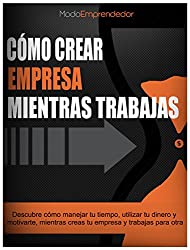
At different stages of life we have the need to study: College, university, work stage or entrepreneurship. In other words, we studied for many years. Hence the importance of not only knowing how to concentrate to study, but also knowing study techniques that facilitate and enhance your learning.
If you tend to get stressed because you feel that the time you invest in studying is useless, or if you want to make your time have more value and you can learn more and faster, surely one of these study methods it will help you.
15 study techniques that will take your learning to another level.
SQ3R (SQRRR)
The SQ3R is a reading comprehension technique that helps students retain and identify important information. His name is an acronym for the 5 steps to complete the technique.
Survey (Acknowledgment): The goal is to give you an idea of the topic, so instead of reading the entire book, start by skimming the first chapter and taking notes on headings, subheadings, and other features such as graphics.
Question (Ask): Ask questions about the content of the chapter, for example: What is this chapter about? What do I know about the subject?
R.ead (Read): Read the chapter and find the answers to the questions you asked in the previous step.
R.ecite (Recite): After reading a section, summarize in your own words what you just read. It is very important that you make an effort to remember the most relevant points and answer the questions in point #2 (question)
R.eview (Review): After reading and summarizing you will understand what were the issues that were not completely clear, so you only need to review certain parts.
Feynman Technique
Richard Feynman was a physicist widely known for his great contributions to quantum electrodynamics, which earned him a shared Nobel Prize in Physics in 1965.
In addition to contributing to other areas of physics, he was known for his ability to explain complex issues in a simple way; and from there is born one of the study techniques most important: the Feynman technique.
To use it you only have to follow 4 steps:
- Pick a topic you want to learn.
- Study it and teach it to someone else.
- If you realize there are gaps in your knowledge, study them again.
- Simplify your explanations and create analogies.
When you have the ability to explain and teach, it means that you already understood the subject.
Retrieval practice or active recall
Active retrieval is one of the study techniques that involves retrieving information through memory. This retrieval effort not only strengthens our ability to retain information, but also improves the connections in our brain between different concepts.
It is recommended that a few days after studying you ask yourself questions about the subject and that you answer them only with what you remember. In this way you will strengthen concepts and it will be more difficult for you to forget them.
Leitner system
if you ever used bibliographic records to study, you will know that they are quite useful to help you retain information. Nevertheless, study time is optimized with the Leitner system, since each subject that you must study will have a review periodicity. Let me explain you:
To get started with the Leitner system, you need to do three things:
- Create cards (digital or physical) for each concept that you must learn.
- Label three to five boxes (digital or physical) with time periods. For example, the box 1 It will be to study every day. The box 2 to study every 2 days and the box 3 to study every week.
- Define study hours in your calendar, in this way you will know that you must take time to review the concepts.
All bibliographic records will begin on the box 1. If you answer the theme correctly, you will pass the token to the box 2. If you don’t answer correctly, the token will stay in the box 1.
In the end, you will know which are the topics that are most difficult for you and therefore you should review them more often. When you repeat this process you will have tokens in all the boxes and all you have to do is move the tokens that you answer correctly to the next box, and move the tokens that you answer wrongly to the previous box.
spaced practice
If you have an exam, don’t wait until the night before to study everything, since this way you will forget the information faster. You may remember concepts during the exam, but it will be fleeting knowledge that you will soon forget. The cause is “the forgetting curve”.
A one hour reading can be 50% to 80% forgotten by the second day. And after 7 days you will only retain 2% to 3%. This of course, if the information learned is not used at all.
Therefore, the recommendation is that you study ahead of time and review again a few days later, since in this way you will create better connections and that information will be with you much longer.
Mental maps
Some people prefer more visual study techniques. If this is your case, mind maps or graphic organizers are a great option.
The structure of a mind map is related to the way our brain stores and retrieves information. Mind mapping your notes, rather than just writing them down, can improve your reading comprehension. It also allows you to see the hierarchies and relationships between concepts.
Exercise before studying
Adding an exercise routine is helpful if you want to study better. It doesn’t have to be an hour of intense activity, just 20 minutes is enough to:
- It boosts brain function and can help improve memory and cognitive performance.
- It releases endorphins, which can improve your mood and reduce stress levels.
study before bed
One study found that studying right before bed improves the ability to recall information. Even better, the researchers concluded that when you fall asleep after learning something, you slow down the rate of memory decline after waking up.
This suggests that getting enough sleep is a fundamental part of learning something new and plays an important role in stabilizing new memories.
Mnemonics
Mnemonics refers to memorization techniques through mental associations, based on already acquired knowledge, to facilitate the recall of unsecured concepts.
Techniques like using your knuckles to remember which months have 31 days, or if you want to remember the names of the planets, you can use the phrase: mYo Vecina youhas mouch Jhey, Shello ORna No.either Psubtraction. (Mercury, Venus, Earth, Mars, Jupiter, Saturn, Uranus, Neptune, Pluto (now considered a dwarf planet))
Mnemonics are not only one of the best study techniques, they are also one of the ways to learn how to improve your memory.
before i see more study techniques I would like to ask you a favor. Simply vote from 1 to 5 to see how you’ve found this article so far. Thank you very much!
Take notes
Taking notes is one of the study techniques that will teach you how to study better; mainly because it has several benefits:
- It keeps you alert.
- Taking notes keeps your body active.
- Helps you avoid feelings of drowsiness or distraction.
- Engage your mind.
- Emphasize and organize information.
In short, a concise and well-organized set of notes will optimize your study time. However, don’t forget that the golden rule for effective note taking is that you should review and organize them after you finish. Since it would be of no use to review them a few days later and not understand them.
change environment
Have different options of places to study. Your room, a library, a nice cafe, etc. Having more than one place will be very helpful, since a study showed that Studying in more than one location can increase your ability to remember what you have learned.
take a quiz
After studying, ask yourself questions and challenge yourself to answer them. In this way you will test how much you have learned and you will know in which areas you should review.
Look up quizzes online to give you a hand. For example, portals like thatquiz.org can be of great help.
Teach what you just learned
Similar to the Feynman technique, you simply study and immediately try to teach someone else what you learned.
Think about the role of a teacher. You should not only know about the subject, you should also know what the key points are to facilitate the understanding of your students and help them tie the necessary dots so that they understand easily and quickly.
If you manage to do that with what you learn, you will never forget it.
just relax
Stress makes learning difficult. UC Irvine researchers find that stress that lasts for just a couple of hours can activate corticotropin-releasing hormones (stimulates cortisol secretion) that disrupt the process of creating and storing memories.
Don’t multitask
Multitasking is a myth. You may think that you are killing two birds with one stone but in reality by doing 2 things at the same time, you are doing 2 things wrong. Additionally, you will be creating bad study habits, mainly because you will get used to devoting more time than necessary to studying and you will learn less.
Conclusion.
There are different study techniques and some will help you. It is your job to give yourself the task of trying them one by one and see which ones best suit your study style.
So now you know, if you want to learn more in less time, you have alternatives at your disposal 🙂
And remember, if you are really interested in creating your own business, you can read our book “How to create a company while working: Discover how to manage your time, manage your money and motivate yourself while creating a company and working for another” , where you will find all the information you need to found your own company, without having to leave your job.


